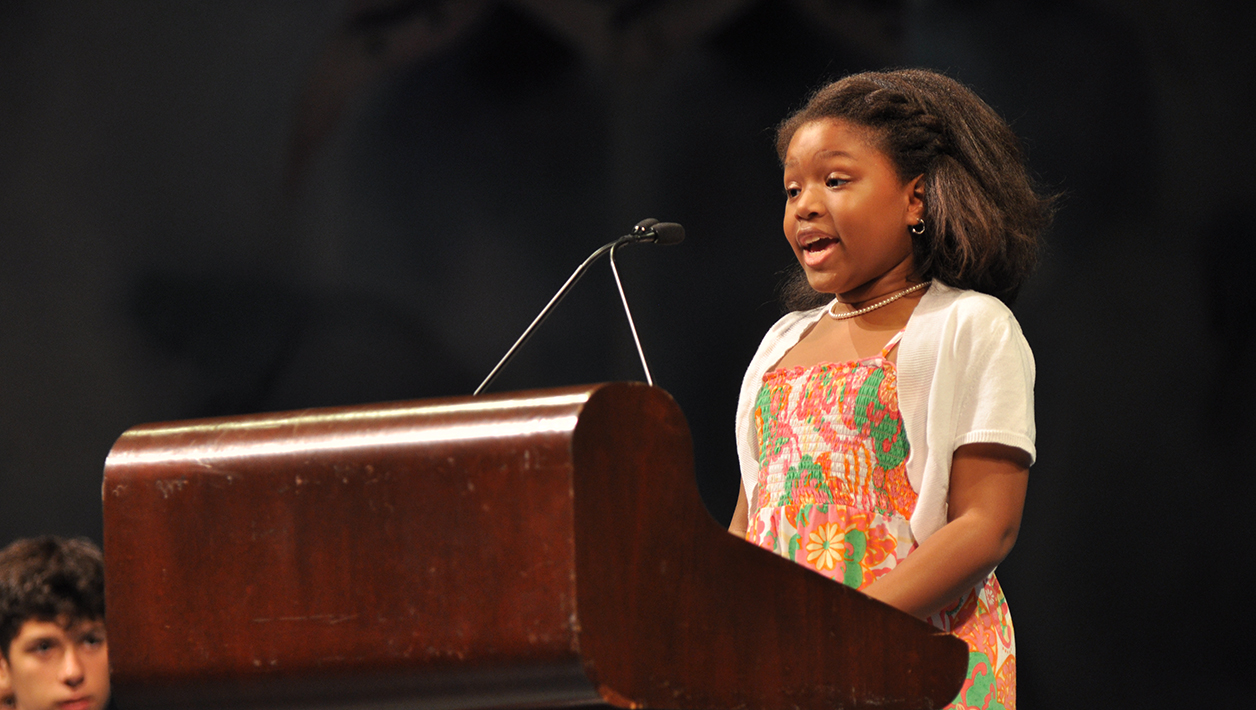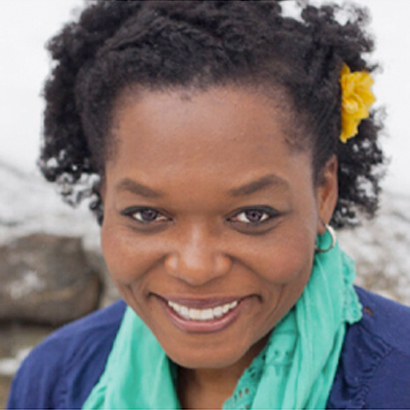
With One Voice: Teaching Text Beyond Lincoln’s Words
We remember Abraham Lincoln for his leadership, intelligence, humanity and his powerful oratory. But one of the most influential things about Lincoln is his ability to inspire others to stand for American ideals. This year, we continue to celebrate Lincoln by expanding the speeches offered in our Oratory programs. We now include voices of others who shared Lincoln’s values in their own thoughts and words, and those who leaned into the promise of the American Dream to create a country that holds to the ideals and values of its founding, even when it did not always do that.

We have added the following speeches:
- On Colonizing Education by Onondaga Chief Canassatego (1677)
- Seneca Chiefs to George Washington (1790)
- What to the Slave is the Fourth of July? by Frederick Douglass (1852)
- Democracy to Me by Mary McLeod Bethune (1939)
- The Struggle for Human Rights by Eleanor Roosevelt (1948)
- I’ve Been to the Mountaintop by Dr. Martin Luther King, Jr. (1968)
We selected these speeches because they speak to the ideals shared by Abraham Lincoln.
In On Colonizing Education (1677), Canassatego refuses the offer to send Onondaga children to school at William and Mary College.
The Letter from the Seneca Chiefs to George Washington (1790) recounts the relationship of the Six Nations and the United States and entreats the leaders of the United States to honor their words and treaties.
What to the Slave is Your Fourth of July? (1852) by Frederick Douglass speaks of the chasm between the promises of the United States and the lived experiences of enslaved Black Americans.
Mary McLeod Bethune’s Democracy to Me (1939) celebrates the partial realization of the American dream in the lives of Black people and urges our country forward to a full realization of equality.
The Struggle for Human Rights (1948) by Eleanor Roosevelt speaks to the need to protect the ideals of freedom, democracy and human rights in our country and throughout the world.
Dr. Martin Luther King, Jr.’s I’ve Been To The Mountaintop acknowledges the successes and unfinished journey towards full civil rights and equality.
The ideals laid out in the founding of the United States underpinned Lincoln’s arguments for emancipation— that all men are created equal and that we all deserve the right to life, liberty and the pursuit of happiness. All of these speeches appeal to those same noble values.

We will continue to expand the diversity of the speeches we include in this and all oratory programs, as we strive to ensure our programs reflect the depth and breadth of the people, cultures and voices that shaped our country.
In his Address to the 166th Ohio Regiment Lincoln framed the American Civil War this way, “It is in order that each of you may have through this free government which we have enjoyed, an open field and a fair chance for your industry, enterprise, and intelligence; that you may all have equal privileges in the race of life, with all its desirable human aspirations.” By including these new speeches, we celebrate the fact that we hear the ideas valued by Lincoln, that continue to shape our country, echoed by people who were different from him. That proves that those ideas and this country are for all who value equity, democracy, freedom of speech, honor and being the best version of oneself.

